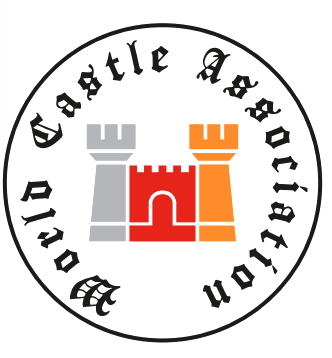Articles of the World Castle Association

Art. 1 Name and Registered Office
World Castle Association (the "Association")
is an Association pursuant to the present Articles of Association and the provisions of
articles 60 ff. of the Swiss Civil Code.
The registered office of the Association shall be in Lausanne, canton of Vaud, Switzerland or in any other place determined by the Board.
Art. 2 Purpose
The purpose of the Association is:
(a) to maintain, to strengthen, to develop and to improve public awareness of castles as a valuable inheritance and tangible reminder of its cultural heritage;
(b) to promote Castle tourism in the world;
(c) to promote the interest of the Association’s members;
(d) to provide advice to the Association’s members and support them in organizing
promotional events;
(e) to provide a forum for castle owners, managers and interested individuals and
organizations, to discuss, and seek solutions to areas of common concern;
(f) to provide advices on appropriate methods of conservation and restoration of astles,
backed by a skills database;
(g) to promote the study of castles, of circumstances with gave rise to their creation, and of all the people and activities associated with them, at all levels of the educational system;
(h) to achieve as wide a membership as possible, encompassing castle owners,
managers, restorers, architects, artists, and craftsmen; academics, students, writers and
historians; and enthusiastic members of the public;
(i) to liaise with other bodies, including local authorities, other international Associations, and other conservation
organizations, in the pursuit of the above objectives;
(j) to organize national and international meetings, training courses, lectures or workshops in the context of the above objectives.
Art. 3 Resources and Responsibility
The ASSOCIATION is a non-profit
Association. Its principal income derives from the annual subscription fees of its members, of which the amount shall be determined annually by the Board.
The Association’s resources can also derive from donations, legacies, loans and any other resources authorized by law.
The Association is solely liable for its debts secured by its assets. Members or corporate bodies have no personal liability.
Art. 4 Membership
The Association shall be composed of founding members, ordinary members and
passive members.
Each person presents at the constitutive general meeting of July 5 of 2019 and the first General Meeting following this one has the status of founding member of the Association.
The status of ordinary member is open to any organization or individual upon written
application to the Board. The decision falls to the Board.
The status of passive member is open to private persons and legal entities who wish to support the Association without participating in its activities. Passive members can take part to general meetings and have a possibility to express their views on the issues discussed in the meetings. Passive members do however not have any right to vote.
Any application for membership shall be made in writing to the Board. It shall establish the requirements and qualifications to be fulfilled by aspiring members, which shall include the obligation to pay the annual subscription fee.
The Board shall have the full discretionary power to accept or turn down the membership request of any applicant without being bound to give any reasons for its decision.
The Board maintains the list of members. Ordinary and passive membership ceases:
(i) by sending a written letter of resignation to the Board at least six months before the end of the financial year;
(ii) by exclusion ordered by the Board for cause, with a right of opposition to the General Meeting. Oppositions must be registered within 30 days of the Board’s decision being notified;
the non-payment of subscription fees (in case of arrears of more than 2 months)
constitutes just cause for removal.
In any case, the subscription fee for the current year remains due. Founding members and Ordinary members can resign but cannot be excluded from the Association.
Art. 5 Rights of Members
Ordinary members and Founding members shall have the following rights:
a. To take part and to vote in the General Meeting;
b. To propose items for inclusion in the agenda of the General Meeting;
c. To nominate candidates to the Board;
d. To take part in the main official events of Association;
e. To take part in and benefit from ASSOCIATION’s assistance, as well as from the development and educational programmes organised directly through the ASSOCIATION;
f. To exercise all other rights arising from the law, these Articles of Association,
as well as from internal regulations, other rules, regulations, or decisions of ASSOCIATION.
Art. 6 Obligations of Members
All members must also make positive efforts to support ASSOCIATION’s development. All members are obliged to promote castles of ASSOCIATION members.
All members and aspirant members agree to respect each other’s mutual autonomy and shall in no way harm the development of other members.
Art. 7 The General Meeting
The General Meeting is the supreme corporate body of the Association. It is composed of all the members of the ASSOCIATION.
The General Meeting has, in particular the following powers:
a. the amendment of the Articles of Association;
b. the nomination of the Board members;
c. the discharge of the Board members ; and
d. the exclusion of members following an opposition.
Art. 8 Right to Convene a General Meeting
The ordinary General Meeting shall take place annually within six months after the end of the calendar year. Extraordinary General Meetings shall be held as often as necessary and at the request of half of the board members.
Art. 9 Form of the Convening of the General
Meeting
The General Meeting shall be convened by a single notice sent by post mail or email by the General Secretary to the members. Such notice must be given at the latest 20 days prior to the General Meeting.
The invitation shall indicate the date, time and place of the General Meeting as well as the agenda and proposals of the Board and of the members who have requested the holding of a General Meeting.
No resolutions can be passed on agenda items which have not been duly announced.
Art. 10 Voting Rights and Representation
Each ordinary and founding member is entitled to one vote.
Each member may arrange representation at the General Meeting through another member or a third party. The representative must produce a written power of attorney.
Art. 11 Resolutions and Voting
The General Meeting is validly constituted when the founding members are present or
represented.
Unless the law or these Articles of Association provide otherwise, resolutions and elections shall be passed and carried out by the absolute majority of the present members. In the event of equality of votes, the General Secretary shall
have a casting vote.
The decisions to amend the Articles of Association require at least two third (2/3) of
the present members, including the approval of the General Secretary.
The decisions to elect the Board and to exclude a member (following an opposition) require the absolute majority of the present members, and the approval of all the present or represented founding members. Votes shall take place by show of hands. Upon decision of the General Secretary, they will be taken by secret ballot.
Art. 12 The Board
The Board shall consist of one to seven members elected by the General Meeting. One Board member will be elected as General Secretary who will be in charge of routine management of Association. In so far as the number of Board members so allows, the general meeting shall elect for a period of four years:
A President that must be a member of the Association; An Honorary President that must be a member of the Association; Three Vice-Presidents; A Secretary General, and; A Treasurer;
The founding members can be represented at any time in the Board.The members of the Board who do not have the quality of founding member are elected by the General Meeting for a period of two years, which shall be indefinitely renewable. The members of the Board that have the quality of founding member are for an indefinite period and can only be dismissed for cause.
This is also the case for the founding members’ representatives.In the event of interim-election, the new members shall complete the term of office of
their predecessor.
Art. 13 Duties - Representation
The Board shall manage the ongoing business of the Association and represent it externally. The Board makes all the decisions necessary to the proper functioning of the Association.
The Board assumes, in particular, the following responsibilities:
a. authorizing the members of the Board or third parties to represent the
ASSOCIATION and determining their signature power;
b. determining the annual subscription fees to be paid by the members ;
c. establishing the budget and managing the resources of the Association ;
d. approving the membership of the new members ;
e. terminating the membership of members (subject to the opposition before the general meeting) ;
f. convening the general meetings ; and
g. delegating certain tasks to third parties within the limits of Association Article.
Art.14 Delegation - Representation
Subject to its non-transferable and inalienable duties, the Board is entitled to delegate the management of all or part of the Association’s business and its representation to one or several members of the Board or to third parties.
Art. 15 Calling of Meetings and Decision
Making
The General Secretary shall convene the Board as often as business requires, but at least once a year.
The founding members (or their representatives) must be present for the Board
to validly take decisions.
Decisions of the Board are taken by the absolute majority of the votes cast. The
General Secretary shall have a veto right on all decisions of the Board.
Decisions on membership’s approval and cancellation have to be approved by at least one founding member elected (or represented) to the Board.
In the event of a tie, the General Secretary shall have the casting vote.
Resolutions may also be passed by way of written consent (by letter, fax, email or text
messages of mobile phone). These resolutions are to be recorded in the minutes of the
following meeting.
Art. 16 Dissolution
The General Meeting may at any time resolve to dissolve the Association; such a decision is subject to the approval of at least three-fourths of the members present at a General Meeting convened for that purpose, and the agreement of all the founding members.
Art. 17 Interpretation
Any question concerning the interpretation of these Articles of Association shall be addressed to the Executive President, who shall seek the advice of the Board before making a final decision.
Art. 18 Prevailing Language
In the event of any discrepancy between the French and the English version of these
Articles of Association, the French version shall prevail.


